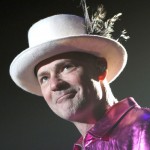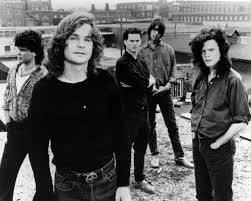* And on writing on Labour Day. But that’s more about me than by her.
[3-minute read]

This is not my bride. But it *is* Marilynne Robinson, the gifted American author, about whom and from whom more in a moment. (Guardian photo)
My bride asks me some hard questions sometimes. Labour Day Monday’s was, What do you want your blog to be? What’s if for, anyway? I mumbled my usual answers, which she cut short with a familiar refrain: I think it needs to be more focused. Who’s your audience? I get your latest posting and I never know what it’s going to be about.
She says that with the unmistakeable This Is Not A Good Thing tone. The Dissatisfied Client tone. I resist, naturally. I like writing about different subjects. Don’t you love it when you go to the movies and you find yourself thinking, Gee crappy, I don’t know WHERE this is going! I do. I find that thrilling, as long as I trust that I’m in good hands. Besides, writing helps me learn, and I have lots of things I like to learn about. Such would be my arguments, if I was feeling, say, defensive.
However, my lady is probably right: it seems most people like to be on familiar ground at Movie Time, and that people return to a Dave Zirin Edge of Sports column, or a Stephen King novel, or the latest reboot of the hottest superhero flick franchise – moving from the countercultural through the cultural to the culture-of-mass-consumption – because they pretty much know what they’re going to get, and they like that. Meanwhile, I expect my readers to enjoy running the gauntlet of my popping-corn enthusiasms, “madly off in all directions”, as Thurber once wrote. Well, sorry about that, readers!
It’s something to ponder, though.
Earlier, my wife had also had this question, given that it’s Labour Day, and our son heads back to high school tomorrow, and I’ve been teaching on that WonderDreadFul Tuesday nearly every year of my adult life. She asked, So are you having your teacher dreams?
This answer was easy, but I didn’t quite believe myself. Because the answer was NO. One sabbatical year years back, my late August was still filled with can’t find the classroom, teaching a subject I’ve never thought about, general performance-anxiety-ridden can I still DO this thing? mid-night theatre. Later on, when for three straight Septembers I was writing within the Canadian government, it was the same out-of-synch story. Weirdly, my subconscious believed I’d be back in the classroom even though I clearly wouldn’t be. But not this year, at least not that I can remember. I’m still surprised.
Not that I’m free of doubt, or my recurring claustrophobic frustration dreams. I am instead worrying about my writing and where it’s headed. (And basketball. The coaching dreams still haunt me, and that season’s coming up, too.) Which, you may be thankful to hear, brings us to Marilynne Robinson.
Continue Reading >>






